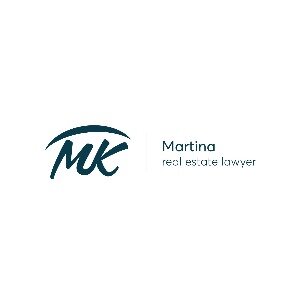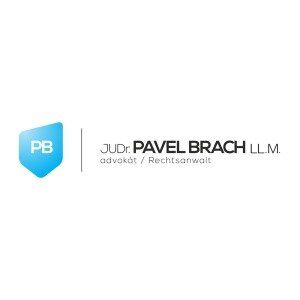Best Conveyancing Lawyers in Czechia
Share your needs with us, get contacted by law firms.
Free. Takes 2 min.
Free Guide to Hiring a Real Estate Lawyer
Or refine your search by selecting a city:
List of the best lawyers in Czechia
About Conveyancing Law in Czechia
Conveyancing in Czechia refers to the legal process of transferring ownership of real estate or property from one party to another. It covers both residential and commercial transactions and involves a series of steps and documentation to ensure the proper and lawful shift of property rights. The process is regulated by Czech civil law, primarily the Civil Code, together with related legislation concerning land registration and administrative procedures. Conveyancing tasks typically include drafting and reviewing purchase agreements, verifying property titles, conducting due diligence, handling payment and escrow, and registering property ownership with the Cadastral Office.
Why You May Need a Lawyer
Hiring a lawyer for conveyancing in Czechia is strongly recommended, especially for those unfamiliar with the intricacies of local property law or those involved in complex transactions. Common situations where legal assistance is essential include:
- Buying or selling residential or commercial property
- Purchasing property as a foreigner
- Inheritance of property
- Dividing or merging land parcels
- Dealing with encumbrances, easements, or unpaid debts linked to the property
- Correcting ownership records or resolving disputes over property boundaries
- Ensuring compliance with tax obligations related to property transactions
A lawyer ensures all legal requirements are met, helps avoid costly errors, and protects your interests at every stage of the conveyancing process.
Local Laws Overview
Conveyancing in Czechia is primarily governed by the Civil Code and relevant provisions concerning property rights, contracts, and registry entries. Some of the most important legal points are:
- Real estate transactions must be made in writing to be valid
- Currently, ownership of property officially passes only upon registration in the Cadastral Register
- The Cadastral Office oversees property registration and keeps authoritative public records
- The buyer is usually responsible for submitting documents for registration but the seller must cooperate as required
- No notary is required for sale contracts, but legal drafting is highly recommended
- Foreigners are generally allowed to purchase property in Czechia with few exceptions
- Due diligence is vital to check for existing mortgages, liens, easements, or legal disputes over the property
- Transfer tax was abolished for buyers in September 2020, but other taxes, such as real estate acquisition tax, may apply in special cases
Thorough compliance with documentation and registration procedures is crucial, as omitting steps or submitting incorrect documents can substantially delay or even nullify a property transaction.
Frequently Asked Questions
What is conveyancing and why is it important?
Conveyancing is the legal process by which ownership of real estate is transferred from one party to another. It ensures that the transfer is valid, that the purchaser gets a clean title, and that both parties comply with legal requirements.
Is it mandatory to use a lawyer for property transactions in Czechia?
While not strictly mandatory, it is highly advisable to use a lawyer for conveyancing. A lawyer can help prevent mistakes, safeguard your interests, and handle complex legal matters that may arise.
What is the Cadastral Register and why is it necessary?
The Cadastral Register is the official database of property ownership in Czechia. Registration in this database is what defines legal ownership, making it a critical stage of the conveyancing process.
Can foreigners buy property in Czechia?
Yes, foreigners are generally allowed to purchase real estate in Czechia, with few exceptions relating mainly to agricultural land or national security zones. Specific rules may apply depending on your nationality and the type of property.
What documents are needed for conveyancing?
Typical documents include a signed purchase agreement, identity documentation, proof of payment, any existing property documentation, and land registry forms. Your lawyer can advise you on additional requirements based on your circumstances.
How long does the conveyancing process take?
The process generally takes a few weeks, though complexity, incomplete documentation, or legal issues may cause delays. Obtaining registration with the Cadastral Office typically takes about 20 to 30 days after application.
Are there any taxes to pay when buying or selling property?
The real estate acquisition tax for buyers was abolished in 2020, but sellers may be subject to income tax on any capital gain. Other administrative fees or taxes may still apply, depending on the transaction.
What is due diligence and why is it important?
Due diligence involves checking the property's legal status, including ownership, possible debts, building permits, boundaries, and any restrictions. This helps prevent future disputes or unexpected costs.
How is payment handled in property transactions?
Payments are typically made through escrow accounts managed by lawyers or banks to protect both the buyer and the seller during the transaction. Release of funds usually occurs only after successful registration.
What happens if there is a dispute during or after the transaction?
Disputes may be resolved through negotiation, mediation, or, if necessary, court proceedings. A lawyer can assist in resolving conflicts and representing your interests should litigation be necessary.
Additional Resources
If you require more detailed information or assistance, the following resources can be valuable:
- Czech Bar Association - offers information on finding licensed lawyers
- Czech Cadastral Office (Katastrální úřad) - handles property registration and provides guidance on ownership records
- Ministry of Justice of the Czech Republic - supplies general legal resources and citizen information
- Czech Ministry of Regional Development - information and guidelines regarding real estate and housing
- Municipal offices - local administrative support for property issues
Next Steps
If you are considering a property transaction in Czechia and need legal assistance, here are the recommended steps:
- Identify and contact a qualified lawyer with experience in conveyancing and real estate law
- Prepare all relevant documentation regarding the property and parties involved
- Meet with your lawyer to discuss the transaction, clarify any questions, and obtain professional advice
- Allow your lawyer to conduct due diligence and assist in drafting or reviewing contracts
- Rely on your lawyer’s guidance through the registration process at the Cadastral Office
- Address any issues or disputes promptly with the help of your legal counsel
Taking these steps will help ensure that your property transaction proceeds smoothly, efficiently, and with all necessary legal protections in place.
Lawzana helps you find the best lawyers and law firms in Czechia through a curated and pre-screened list of qualified legal professionals. Our platform offers rankings and detailed profiles of attorneys and law firms, allowing you to compare based on practice areas, including Conveyancing, experience, and client feedback.
Each profile includes a description of the firm's areas of practice, client reviews, team members and partners, year of establishment, spoken languages, office locations, contact information, social media presence, and any published articles or resources. Most firms on our platform speak English and are experienced in both local and international legal matters.
Get a quote from top-rated law firms in Czechia — quickly, securely, and without unnecessary hassle.
Disclaimer:
The information provided on this page is for general informational purposes only and does not constitute legal advice. While we strive to ensure the accuracy and relevance of the content, legal information may change over time, and interpretations of the law can vary. You should always consult with a qualified legal professional for advice specific to your situation.
We disclaim all liability for actions taken or not taken based on the content of this page. If you believe any information is incorrect or outdated, please contact us, and we will review and update it where appropriate.
Browse conveyancing law firms by city in Czechia
Refine your search by selecting a city.











